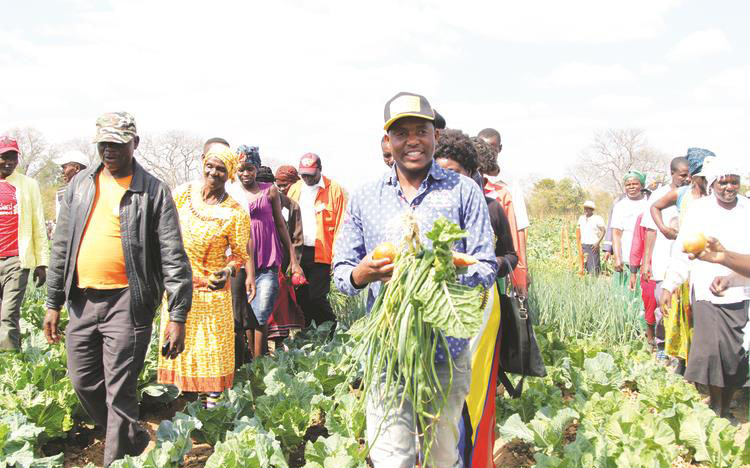
By Kudakwashe Gwabanayi The country has been seized with ongoing investigations around the corruption case of Justice Mayor Wadyajena.
Whilst a lot has been said about the dynamo politician, the farming community has been left aghast by the allegations that seed and other farming inputs in his constituency were being distributed along party lines.
What is heartbreaking about these revelations — if true — is that Gokwe Nembudziya is one of the poorest districts in the country.
What makes it worse is that the area is not favourable to many farming crops giving farmers no option but to do cotton and maize.
The soils are bad, and so are the weather conditions. Both crops’ selling prices are controlled by the government.
At the farmers’ disadvantage, clothing bales from China and other European and American countries have rendered cotton a lowly valued farm product.
As if that is not enough, the roads are bad, making it difficult to transport anything from the place.
There is no phone connection in some parts of the constituency, while water is very scarce as if people are living in the desert.
- Chamisa under fire over US$120K donation
- Mavhunga puts DeMbare into Chibuku quarterfinals
- Pension funds bet on Cabora Bassa oilfields
- Councils defy govt fire tender directive
Keep Reading
This is in sharp contrast with the flamboyance that Wadyajena displays, as he represents Gokwe-Nembudziya in Parliament.
One cannot get their head around how the Parliamentary Portfolio Committee on Lands and Agriculture chairperson Wadyajena would then allow politics of the stomach to prevail at his doorstep.
There is so much that needs to be done so for Gokwe to be restored to its glorious past.
Agriculture inputs, or rather food security must never be used as a political tool for personal gains and anyone who attempts to do that will easily lose the respect of the farming community.
Whilst it may be too late to raise these issues to the legislator, it is good that anyone who intends to represent the people of Gokwe-Nembudziya is made aware of what is eating at their hearts and that of any farmer the most.
The Gokwe community is impoverished yet they have survival tactics.
They have managed to maintain subsistence farming over the years and have made it possible for them to thrive.
The effort that the community has put into cotton farming over the years despite its declining value is a clear indication that these people love farming.
They do it so well and it is time their sweat is rewarded instead of leaders play dirty games around them.
The people of Gokwe-Nembudziya need projects in livestock productions like pigs, chickens, cattle and many others because they do not require the best soils.
The people of Gokwe-Nembudziya — because they receive minimal rainfall — need to be advised on other crops like millet, sorghum, castor beans and many others that thrive with minimal rainfall.
These people require leaders who will open their minds to solar irrigation systems that they can grow vegetables and sell among themselves and take some to the market.
The issue of roads and phone connectivity needs to be addressed because once they realise their full farming potential they need to communicate with the market and send their wares in good time.
The status of the farmer in Zimbabwe will never be uplifted as long as there are some farmers who are downtrodden.
This used to be the situation with tobacco farmers but various protests and intervention have left them in a better position.
The farming community needs to stand up for one of its own so that when farmers are called to stand up, cotton farmers do not embarrass anyone.
But above everything else, farming inputs, just like land, are everybody’s right. Even if it’s one of those “catch and release” programmes, Wadyejena’s case must serve as a lesson and warning to leaders not to tamper with people’s stomachs.
- Gwabanayi is a practising journalist and a farmer in his own right. — 0772 865 703 or [email protected]










